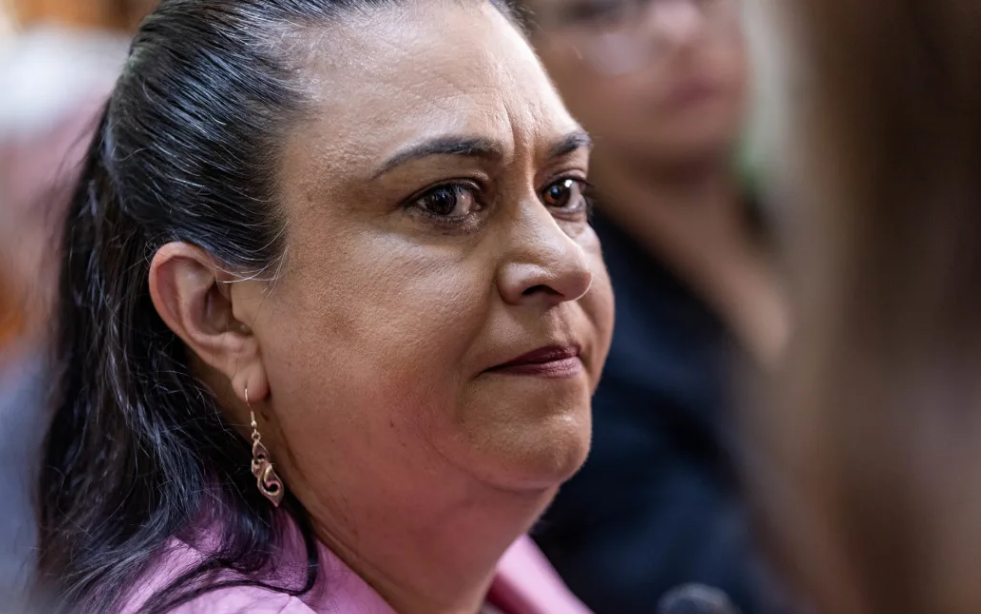
The court released its decision on Monday.
At the same time, a bill proposing the repeal of section 7AA from the Oranga Tamariki Act has been introduced to Parliament, meaning the Tribunal no longer has jurisdiction over the case.
In its ruling, the court acknowledged the importance of the Waitangi Tribunal's role in inquiry into legislation that is inconsistent with the principles of the Treaty of Waitangi and that the minister had relevant evidence to give to the Tribunal.
It disagreed with the High Court's ruling that the principle of comity, or legal reciprocity, applied to the Tribunal.
Given the Tribunal had already released a report and the minister answered their questions in writing, it was unlikely she would need to give evidence to the Tribunal.
In its final report released last week, the tribunal said there were clear breaches of the guarantee to Māori self determination and the Treaty principles of partnership and active protection.
It said prejudice would arise from the rushed and arbitrary repeal of the section of the Act.
'Hollow victory' - claimants respond to Bill repeal
A lawyer for one of the Waitangi Tribunal claimants says the Court of Appeal's judgment is a hollow victory.
Ngāti Pikiao lawyer Annette Sykes said iwi were very concerned over the introduction of the repeal bill to Parliament, something they saw as an act of bad faith on the Crown's part.
"Once we got the judgement we were then advised by the solicitor general that the minister is not coming to the Waitangi Tribunal because the executive this morning moved to introduce a bill to Parliament to directly overcome that judgment.
"They said section 7AA is going to be removed and of course once something goes into Parliament, the Waitangi Tribunal is without jurisdiction."
In spite of that, the Court of Appeal had reaffirmed the Waitangi Tribunals constitutional role and that it had the power to summons a minister were appropriate, Sykes said.
It would only take a little bit more for Māori to be back on the streets, like they were during the Foreshore and Seabed hīkoi, she said.
"Ngāti Pikiao and I think many other hapū in this nation are poised to confront this with all the might they can for the... way that the bad faith decisions of the Crown are impacting on things that are the most precious."
Dr Luke Fitzmaurice-Brown - a law lecturer based in Wellington - said the Tribunal's final report was clear on how the section's removal would affect Māori.
"Doing that would, in their view, be a breach of Te Tiriti o Waitangi, the guarantee of tino rangatiratanga and the principles of active protection and partnership. So, really interesting in terms of the court decision, disappointing in terms of the subsequent follow up from the government. But we still have that Waitangi Tribunal report there to help us understand that from a Treaty perspective."
Fitzmaurice-Brown said he would be hesitant to criticise the High Court's initial ruling.
"This is all happening very fast. I was slightly surprised by the High Court judgement, I thought it was going to go the other way given its constitutional importance. But, as the Court of Appeal noted, they were careful not to make it a personal criticism of that particular judge given how quickly this is all moving and the complexity of some of that."
ACT Party's justice spokesperson Todd Stephenson said the Tribunal had gone "well beyond its brief and has become increasingly activist".
"The Tribunal's actions exemplify why ACT is introducing a Treaty Principles Bill. It's time we defined the principles of the Treaty based on the three articles written and signed in 1840, so that all New Zealanders are treated equally, rather than the Treaty being considered a partnership between the Crown and Māori.
"We also look forward to the delivery of the coalition's commitment to amend the Waitangi Tribunal legislation to refocus the scope, purpose, and nature of its inquiries back to the original intent of that legislation."
Labour's deputy leader also criticised the government for ramming the bill before Parliament, saying it will hurt vulnerable children. Acting children spokesperson Carmel Sepuloni said the repeal would mean harmful devastating consequences for Māori children.
"The government's refusal to heed the tribunal's warning and instead, lunge head-first into repealing Section 7AA may mean harmful ramifications for Māori children," Sepuloni said.
"National need to do the right thing and step in to stop the repeal of Section 7AA. They cannot allow ACT to continue running rampant and belittling both the mana of the Waitangi Tribunal and the rights of tamariki Māori."
Sepuloni described the move as "divisive rhetoric" and said Chhour and Seymour should apologise for wasting time and taxpayers' money.
National should not compromise the care and protection of vulnerable children because of its coalition agreement with ACT, she said.
"We agree with the Tribunal's findings, and call on the government to dump this callous Bill, use the current legislation to review the section and engage widely with affected groups."
Minister's statement
In a statement tonight, Chhour said the bill’s introduction reaffirmed the coalition government’s commitment to the safety of children in care.
“While section 7AA was introduced with good intentions, it creates a conflict for Oranga Tamariki when making decisions in the best interests of the child or young person.
“I consider that section 7AA allows the treatment of children and young people as an identity group first, and a person second, it creates a divisive system that has had a negative impact on caregivers.
“This repeal will make sure that Oranga Tamariki is entirely child-centric and is making decisions that ensure a child’s wellbeing and best interest.
“Over successive years, Oranga Tamariki has failed our most vulnerable children, and in part that has been because of s7AA. Removing s7AA from the Act reinforces the need to put the safety of the child first.
This Bill does not stop the consideration of cultural wellbeing of children and young people in the care of Oranga Tamariki, the minister said.
“I have indicated to Oranga Tamariki that existing strategic partnerships with iwi and Māori organisations will continue, and the repeal would not prevent Oranga Tamariki from entering into further strategic partnership agreements with iwi or Māori organisations.
“However, I believe section 7AA has placed some duties on the chief executive that are at odds with the agency’s primary purpose, which is to support the wellbeing of our most vulnerable and at-risk children.”
- additional reporting ODT Online













